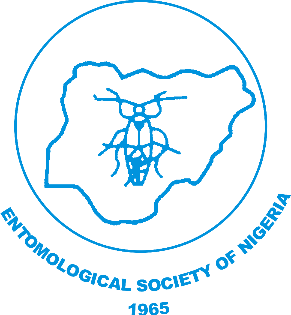Microbial insecticides in Nigeria: State of the art
DOI:10.36108/NJE/8891/90.0140
MATANMI, B.A.
ABSTRACT: The term “microbial insecticides” is defined here in the broad sense to include microbial metabolites or entomopoisons produced by micro-organisms. Examples include Bacillus thuringiensis delta-endotoxin which is very active against many lepidopterous and dipterous larvae, beauvericin, a toxic metabolite of the fungus, Beauveria bassiana, and other entomopathogens which might not produce any toxic metabolite at all but arc mass-produced, formulated, and ‘ applied as conventional insecticides. As of now, microbial insecticides are not in operational use in Nigeria. However, there is a basis for the detection, isolation, and subsequent development of naturally occur in entomopathogens. Different commercial products have also been tested if only on a small scale in the laboratory or field. This paper reviews the beginnings of insect pathology/microbial control in Nigeria. It also discusses the, advantages, prospects and problems of microbial insecticides as a component of integrated pest management in agriculture and public health in this part of the world.
